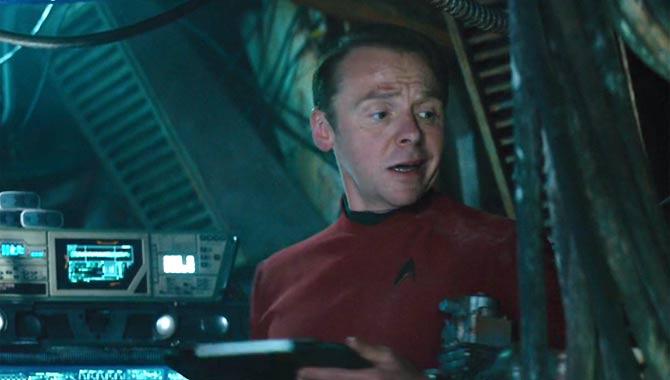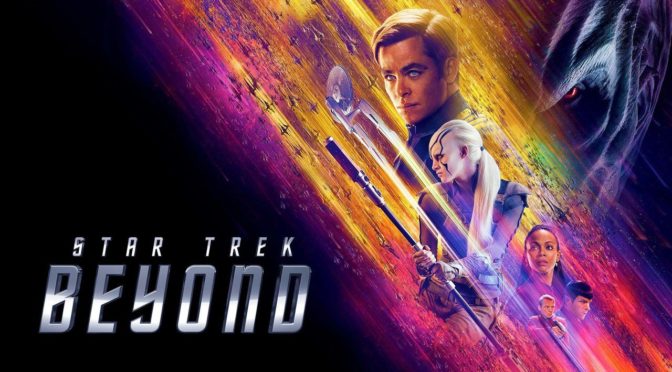The reboot of the Star Trek movie franchise was never as successful as its box office results would imply. The first film was a passable start but the second was mostly a retread with a blundering plot. Both film’s suffered from director J. J. Abrams’s (Lost) biggest flaws: overreliance on nostalgia and initially appealing but ultimately unsatisfying mysteries. After Star Trek Into Darkness recycled the plot of its predecessor, it had seemed that the writers were out of ideas, but the series returned this year with Star Trek Beyond. The Enterprise is sent on a rescue mission to an uncharted nebula only to soon be destroyed a swarm of spacecraft controlled by an alien named Krall (Idris Elba; Prometheus) forcing them to abandon ship to the nearby planet. Split up, the crew has to find each other and stop Krall before he finds an ancient device on board that would allow him to use his swarm to attack bases and planets.
The films are increasingly feeling like extended $150 million dollar television episodes. That has both benefits and downsides. It frees the movies to be relatively independent of each other but has also leads to a significant amount of repetition. The sources of conflict are the same: Kirk doesn’t think he lives up to his father, Spock doesn’t know how to manage his duty to his people, and Uhura and Spock’s relationship is still “complicated” even though they break up at the start of the film. The plot is overly familiar and the relationships don’t show growth from the previous entries. It’s difficult to avoid the thought that the producers, and possibly the fans, value familiarity above all else.

The script tries to bring an even lighter tone to the series. Co-written by Simon Pegg (Hot Fuzz), the screenplay incorporates jokes throughout the film. However, these attempts at humor are almost always the same jokes made in the previous films (Spock doesn’t understand emotions, etc.). Repeating the same punchlines means few of the setups actually produce any laughs. They aren’t helped by the acting either. Chris Pine as Kirk (Hell or High Water) continues his typical stiff performance, vainly attempting to show charisma and Bones (Karl Urban; Dredd) delivers all his lines as if starring in an early 1930s talkie, overacted with shtick to spare. Even the minor roles do not hold up with several actors using irritating speech choices. Anton Yelchin’s (Green Room) Russian accent as Chekov appears to have been based off a comedian’s standup routine and Pegg as Scotty sounds like he is auditioning for the part of Groundskeeper Willie on The Simpsons. The weak script combined with worse acting thwart the desired humor.
With a different director at the helm, the film’s action has a new look. Justin Lin (Fast & Furious 6) has handled large scale action many times before and his experience shows off. Set pieces are more clearly composed and more playful than ever before. In particular, the film’s climax relies on a plot device that will annoy some, but for the rest leads to an uproarious and gleeful display of demolition. Even though the majority of the effects appear to be computer generated, Lin is able to keep them exciting with his quick pacing. Thanks to Lin’s efforts, Star Trek Beyond’s spirited action scenes outweigh the poor writing and wooden performances, producing an adequate entry in this middling franchise.

3/5 stars.
